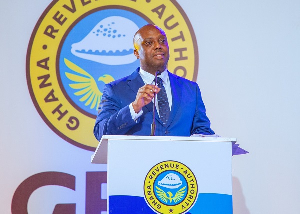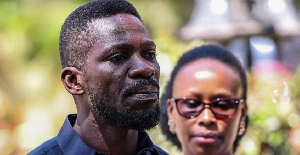“The tragedy of modern man is not that he knows less and less about the meaning of his own life, but that it bothers him less and less (Vaclav Havel, Czech playwright).”
Havel sets the analytic tone for us. That brings us to the important work of the Brazilian thinker, Paulo Freire, a brilliant scholar whose influential theories on grassroots conscientization has enormously impacted the creative development of critical pedagogy. Granted, his theoretical formulations follow directly from Fanon’s provocative theories on grassroots conscientization, a radical orchestration meant to depose the hegemony of social injustice and classism, among other variables, in order to restore dignity and respect to the human person, these, via the psychological activation of a people. Admittedly, his powerful thesis, advanced in the book “Pedagogy of the Oppressed,” must be used in every teacher training school in the African world. Besides, although his radical methodological approach to education is essentially Marxist, an ideological strain antithetical to Afrocentricity, yet, like other progressive ideas with immense transformative value, there exist important theoretical overlaps with Afrocentric pedagogy.
That is, his critique of the so-called “banking model of education,” a foundational philosophy of Eurocentric pedagogy, frees “studentship” from the hegemonic endometrium of cranial emptiness as well as from the intimidating guillotine of “teacherhood,” which, in theory, is considered superior to “studentship.” This poses a serious problem for us because a “teacher,” like a “student,” learns along as he or she impacts knowledge. This also implies simultaneous functionality between “teacher” and “student.” Technically, Freire believed, very strongly, that interpreting a “learner” in exclusive symbolic terms as “empty vessel,” a theoretical borehole demanding that a “teacher,” supposedly the more knowledgeable one, fills it up, made a “learner” a necessary “object” in a relationship of unequal dichotomy with his or her “teacher.” Certainly, this ideological confluence accommodates Afrocentric pedagogy and Freirean critical pedagogy in many respects. This makes more sense in another context.
Let’s stress here that no unlettered individual walks around bearing the zero-weight of cranial emptiness, because, sensory perception, involving taste, smell, sight, touch, hearing, and umami, alone, could potentially flood the human brain with useful information without the instructional benefit of teacher-learner relationship. On the contrary, the “tabula rasa” of Thomas Aquinas, John Locke, and Sigmund Freud has come under serious scientific revision (See Fiona Macrae’s article “Babies Remember Music They Heard in the Wound up To Four Months after They Are Born,” published on MailOnline, Jan 30, 2014). Still, the Eurocentric theory on “empty vessel,” is, essentially, antithetical to Afrocentricity, this, in another creative context. Which is that it also potentially distorts the ideological fulcrum of Allan Bloom’s influentially controversial work “The Closing Of The American Mind,” a book which sees relativism, or multiculturalism, as a didactic concept detrimental to the social health of intellectual openness and psychological development?
That is, Bloom’s theory makes no room for critical thinking in the American educational system! This is exactly what our newly-proposed educational system in Africa should strive to avoid, as stifling critical thinking spells disaster for growth and development. Then again, Prof. Arthur M. Schlesinger, advisor to and biographer of John F. Kennedy, one of the serious critics of Afrocentricity, alongside the classicist Prof. Mary Lefkowitz, writes: “But the division of society into fixed ethnic ethnicities nourishes a culture of victimization and a contagion of inflammable sensitivities. And when a vocal and visible minority pledges primary allegiance to their groups, whether ethnic, sexual, religious, or, in rare cases, political, it presents a threat to the brittle bonds of national identity that hold this diverse and fractious society together (See “The Disuniting of America: Reflections on a Multinational Society,” p. 113). This observation is an important one though it represents one of those deceptively reductionist circumventions of broader sociological questions.
Put another way, no American ethnic, religious, or racial group willingly submits to social delimitation or declassed exclusivism if not actually pushed by combined forces of history, racism, minoritized conditionalities, politico-economic subjection, intellectual devaluation, and electoral ostracism. As we noted elsewhere, Afrocentricity is not about separatism. Summarily, it’s about psychological decolonization of the African mind, self-determination (political, economic), self-knowledge, victorious consciousness, self-respect, prioritizing Africa’s strategic interests above others, etc. The moral connotation is that the pursuit of self-autonomy by a “minority” constitutes a political prerequisite to social integration. Booker T. Washington, Marcus Garvey, and Kwame Nkrumah preached this philosophy of “self-reliance.” Yet “minority” demographics are what American conservatives like Pat Buchannan don’t want to hear. Neither do they approve of multiculturalism (See “The Death of the West: How Dying Populations and Immigrant Invasions Imperil Our Culture and Civilization”).
Buchannan’s theory unambiguously excludes non-Whites from partaking of the cake of Western civilization. Meanwhile, syndicated television host Tony Brown, author of “Black Lies, White Lies,” argues forcefully in this book that the blatant failure on the part of Black America to realize economic self-sufficiency before boarding the integrationist bandwagon may have contributed to some of the structural problems in Black America today. This situation is generally applicable to the African condition. In other words, Africa has joined the integrationist bandwagon of globalism without the moral benefits of full self-determination. Theoretically, it’s like forcing one’s gangrenous toes into tight-fitting shoes, rather than through open-toe house slippers, when no prior attempts have been to secure their healing. Critical thinking favors this line of reasoning, in which self-autonomy affirmatively asserts precedence over facile integrationism. This does not mean Africa’s variegated ethnicities should not strive for integrationist nationalism. This is why Freirean critical pedagogy and Afrocentric didactics matter to the discourse on psychological and cultural independence (we shall later discuss Paulo Freire in some detail).
More importantly, majority status, in and of itself, does not always represent “truth,” “righteousness,” or “collective wisdom,” a conditionality which necessarily imposes the political gavel of dictatorial tendencies on the larger society, squeezing minorities through the birth canal of social and political tangentiality. In principle, moral totalitarianism is what majoritarian politics has chosen to become. That said, Schlesinger seems to also accept the moral paradox of ethnic individuation in the larger framework of integration as a psychological necessity, writing: “Now there is a reasonable argument in the black case for a measure of regrouping and self-reliance as part of the preparation for entry into an integrated society on an equal basis….Affirmation of racial and cultural pride is thus essential to true integration (ibid., p. 102). Yet Schlesinger equivocates on the didactic and moral importance of multiculturalism in the American educational system as a critical perusal of his book evidently shows. In fact, there are serious questions his book does not raise, let alone address, if at all. For instance, he does not understand why African Americans should re-Africanize themselves after three hundred years of their Americanization,
Yet, Schlesinger, of partial Jewish ancestry, does not tell us why Jews who have been in American for centuries should be practicing Judaism and reading the Torah and Talmud. What's more, he does not tell us why the Irish, Italians, Greeks, Germans, English, etc., who have been in America for centuries should continue to sustain their purchase on ancestral and traditional practices. And who said slavery completely de-Africanized the African Diaspora in the Western Hemisphere? African Religion, language, dishes, rituals, folklore (Ananse, Mami Wata, etc), and the like, are entrenched, if facilely, even celebrated, cultural staples across the Western Hemisphere. The role of Ananse folklore in the spiritual, psychological, intellectual, political, and cultural evolution of Bob Marley has been explored by cultural critics (See Timothy White’s “Catch a Fire: The Life of Bob Marley”). Moreover, the fruit Ackee, which is part of Jamaican’s national dish, originated from Africa. Indeed the cultural and spiritual facade of Africa hovers over the Americas.
Furthermore, fufu is still eaten in the Caribbean in such places as the Dominican Republic, Cuba, Puerto Rico, Barbados, Surinam, though recipes vary across geographies just as pizza recipes vary across geographies, from Europe to America to Africa to Asia. Even the “soul food” of the American South, overwhelmingly subscribed to by Black America and aerosolized in North America, has Africa’s cultural DNA fingerprint sprinkled all over it. Particularly interesting, though, is the fact that these African cultures are relatively, if not more so, entrenched in Maroon cultures spanning Jamaica, Mexico, Suriname, Bahamas, Texas, Columbia, French Guiana, and Oklahoma (See Colin Harris’ “Creativity and Resistance: Maroon Cultures in the Americas”). The scholarships of Ama Mazama, WEB Du Bois, Robert Farris Thompson, Molefi Kete Asante, Wole Soyinka, Zora Neale Hurston, and Henry Louis Gates, Jr., especially his “The Signifying Monkey: A Theory of African-American Literary Criticism” and “Figures in Black: Words, Signs, and the ‘Racial Self’,” underscore our theory on cultural diffusionism.
The latter two books take a radical driftage from Eurocentrism as far as the literary criticism of African literature, diasporic and continental, goes. Clearly, Schlesinger’s intellectual and philosophical antagonism toward African Americans’ assuming full control of the affairs of Black America, particularly taking the education of their children into their hands, is explicably suspicious. We may even venture to say his attack on multiculturalism also displays a symptomatological vestigiality of moral bankruptcy. And his general appraisal of the Afrocentric concept is unforgivably misplaced, misinformed, and misguided. However, his intellectual ambivalence toward multiculturalism does not set a good precedent for Africa. Again, critical thinking demands that we accord each ethnic enclave, whether in Africa or in America, the respect and cultural freedom it deserves. Put differently, the moral and political power it needs to advance in the body politic, though, to say the least, the American example, like the ideological extremism and separatism of Eurocentrism, radically remains materially, spiritually, didactically, and philosophically different from ours, our African situation.
Notably, as well, we used “The Power of Critical Thinking (2)” to show how Dr. James W. Loewen’s explosive scholarship exposes Eurocentric lies taught to the world, to students, including our own children, as “universal truths,” even though these lies do not exist anywhere except, perhaps, in the pedomorphic framework of Eurocentrism. Alternatively, the Egyptian Marxist economist Samir Amin’s critical book, “Eurocentrism: A Critique of Eurocentrism and Culturalism,” also presents an Arab/Islamic view of Eurocentrism, indicting and rejecting the latter as revisionist historicism and inferentially as insert package of verifiable lies and distortions, in other words, what Plato had referred to as “noble lie” in “The Republic,” just as other influential works such as Peter Gran’s “Beyond Eurocentrism,” Molefi Kete Asante’s “The Painful Demise of Eurocentrism,” Shohat’s and Stam’s “Unthinking Eurocentrism,” Chinweizu’s “Decolonizing the African Mind,” Bernal Martin’s triumvirate voluminous collection “Black Athena: The Afro-asiatic Roots of Classical Civilization,” George James’ “Stolen Legacy,” and Diop’s “African Origin of Civilization” expose the fabrication of Greece history and hence Western civilization.
In the meantime, we cannot overstate the moral necessity for analytically dismantling Eurocentrism an intellectual exercise worth pursuing. Asia, particularly India, has already taken the necessary steps to rid tertiary institutions of Eurocentric curricula, insisting on scholarship on the African, Islamic, and other non-Western worlds (See “Multiversity’s Non-Eurocentric Undergraduate Philosophy Curriculum”). In a related context, the late piano virtuoso and critical theorist Edward Said, a Harvard-trained English Literature professor, spent his entire academic career dismantling the epistemological conceit of Eurocentrism (See “Orientalism”). In fact, history, “true” history, namely, may constitute an important, transformative, and powerful force for progressive human socialization if done from the standpoint of cultural, epistemological, and scientific fairness. Yet falsifying history, as Eurocentrism does, merely for the sake of elevating one group above the other or sidelining historically marginalized minorities can set a society, race relations, and globalization on a dangerous course of disintegration. A relevant example is Western tendency to devalue African art though the same devalued African art is the heart and soul of Pablo Picasso’s Cubism, one of 20th-Century most influential art forms (See Nadeen Pennisi’s “Picasso and Africa: How African Art Influenced Pablo Picasso and His Work”), while African sculpture stolen by the West grace her museums!
Therefore, let us not dare give Western civilization, or Eurocentrism, a baptismal certificate of historiographic or epistemological hagiography. The late Samuel P. Huntington, a well-known White-American political scientist, noted: “The West won the world not by the superiority of its ideas or values or religion…but rather by its superiority in applying organized violence. Westerners often forget this fact, non-Westerners never do (See “The Clash of Civilizations and the Remaking of World Order,” p. 51”). He notes elsewhere: “In the emerging world of ethnic conflict and civilizational clash, Western belief in the universality of Western culture suffers from three problems: It’s false; it’s immoral; and it’s dangerous…Imperialism is the necessary logical consequence of universalism (ibid, p. 310). Then, between 1918 and 1922, Oswald Spengler, a noted German philosopher of history and historian, authored “The Decline of the West” in which he advanced a revolutionary theory dismissing evaluation of historical and civilizational processes via the epistemological prism of Eurocentrism, contrary to John Hobson’s “The Eurocentric Conception of World Politics: Western International Theory, 1760-2010.”
On another plane, Ngugi wa Thiong’o has also shown how the West used missionary Christianization to prepare the minds of the Irish then later the minds of Africans for their spiritual and physical colonization (See “Something Torn and New” and “Decolonizing the Mind”). When all is said and done, Prof. Jared Diamond’s Pulitzer Prize-winning book, “Guns, Germs, and Steel: The Fates of Human Societies,” and documentary film by the same name, confirms Huntington’s well-informed observations. Further, Adam Hochschild’s “King Leopold Ghost” adds to the egregious shortcomings of Western civilization, so are the sixteenth-century Dominican Friar’s “History of the Indies” and “A Short Account of the Destruction of the Indies,” Mark Mazower’s “Dark Continent: Europe’s Twentieth Century,” Frederick Price’s “Race, Religion, and Racism: Perverting the Gospel to Subjugate a People (Vol. 2), David Kertzer’s “The Pope and Mussolini: The Secret History of Pius XI and the Rise of Fascism in Europe,” Ken Kiernan’s “Blood and Soil: A World History of Genocide,” Brett Bowden’s “The Empire of Civilization: The Evolution of an Imperial Idea,” Noam Chomsky’s “On Western Terrorism: From Hiroshima to Drone Warfare,” Chinweizu’s “The West and the Rest of Us,” and Harriet Washington’s “Deadly Monopolies: The Shocking Corporate Takeover of Life Itself” and “Medical Apartheid: The Dark History of Medical Experiment on Black Americans from Colonial Times to the Present,” to name a few, expose the evils of Western civilization.
And what has France’s ex-President Nicolas Sarkozy, in the vein of prominent European thinkers such as Friedrich Hegel, Arnold Toynbee, David Hume, Thomas Jefferson, Louis Agassiz, declaring in Dakar, Senegal: “The tragedy of Africa is that the African has not fully entered into history…They have never really launched themselves into the future…The African peasant only knew the external renewal of time, marked by the endless repetition of the same gestures and the same words…” writer Diadie Ba notes in “Africans Still Seething Over Sarkozy Speech,” continuing Sarkozy’s speech: “In this realm of fancy…there is neither room for human endeavor nor the idea of progress.” Did Sarkozy really make these racist remarks about Africa? Well, he did. Moreover, was it not Jean-Marie Bockel, the French Secretary of State Corporation, who said “the future of Africa belongs firstly to Africans,” an idea Afrocentrists, Garveyites, Nkrumahists, and well-meaning Africans have been trumpeting for years?
What do others say about the relationship between the West and Africa? “I am one who has always viewed the ongoing relationship between France and Africa as suspicious and detrimental to the continent’s growth and development,” Chofor Che observes in “France and Francophone Africa: A Marriage of Convenience,” adding: “My position is fortified by a statement made in 2006 by former President of France, Nicolas Sarkozy during his presidential campaign, where he said ‘France does not need Africa,’ During President Sarkozy’s term of office, Francophone Africans were repatriated in their numbers from France. Despite such humiliation and expulsion of Francophone Africans from France, French presence in Africa remains firm…” Interestingly, another author, Antoine Roger Lokongo, notes in “African Nations Can No Longer Afford to Be France’s Garden”: “France does not respect Africa. Former French President Nicolas Sarkozy went as far as insulting Africa, when, in Dakar, the capital of Senegal, he said: ‘Africa has no history’ and ‘the African man has not fully entered into history…”
Lokongo continues: “Some authors have seen France’s traditional African policy as being equivalent to the US Monroe Doctrine. Though different in their purposes, both doctrines justify, mainly through historical and geographical arguments, the exclusive control by a nation over what they regard as their “private backyard”(arrière-cours)…This is reflected in a number of French expressions used to describe Francophone African countries, such as domaine réservé (private domaine), chasse-gardée (exclusive hunting ground), and pré-carré (natural reserve), which prescribe the backyard as being “off limits” to other powers.” Elsewhere Lokongo admits: “Former French President Jacque Chirac acknowledged that ‘without Africa, France will slide down into the rank of [world] power.’ Chirac’s predecessor François Mitterrand already prophesied in 1957 that ‘Without Africa, France will have no history in the 21st century.’”
Finally, regarding Africa’s role in underwriting France’s national economy, Che writes: “Another area where Francophone Africa continues to suffer from the marriage with France is the imposition of the franc CFA…The structuring and composition of the central banks makes it possible for a colossal flow of finances from Africa to the French public treasury. This means that very poor countries in Africa finance France. There happens to be over 8000 billion of CFA from Africa stocked in France. This means over 40 million Africans are deprived of their revenue. This can be connoted as monetary slavery which is the outcome of the marriage of inconvenience between France and Francophone Africa.” Quite apart from these horrifying facts, Molefi Kete Asante visited Ivory Coast last year, 2013, and after being in contact with well-placed Ivorian leaders he returned to America, then later related to us that the French practically controlled 99% of the Ivorian economy!
“Every year, the CIA and World Bank publish a list of the poorest countries in the world. In the current list available on the CIA website, the majority of the former French colonies in Africa fall in the ‘bottom 50’ of the poorest countries in the world,” notes Hinsley Njila in (See “CFA—A Currency Designed to Keep Francophone African Countries Poor”; see also New African’s Ruth Tete’s and Soh Taadhieu’s interview with the Speaker of the Ivorian National Assembly, Prof. Mamadou Koulibaly, a piece published under the title “How France Lives Off Francophone Africa Via the CFA France”). Having said all these, the most indispensable question to ask is simply this: How best does one appreciate another’s culture? Let’s rephrase the question: Generally, given the conceited posturing and condescending attitude of the West toward non-Western cultures, how does a Westerner learn to understand an African or Asian culture? The best answer, in our opinion, is cultural relativism.
But what is cultural relativism? It’s “the principle that an individual human’s beliefs and activities should be understood by others in terms of that individual’s own culture” (Princeton University). Importantly, in the introduction of Melville Herskovits’ book “Cultural Relativism: Perspectives in Cultural Relativism,” Donald T. Campbell, an American social scientist and evolutionary epistemologist, writes: “He mistakes his own cultural categories as universally correct, as part of nature rather than a more or less arbitrary convention of his own people. When he encounters different patterns of judgment in another culture, he cannot help but see them as erroneous. Consciously or unconsciously, he regards his home culture as superior, the people studied as inferior. The acts his culture has taught him to be immoral and unclean when done by others.” This observation is mostly typical of the West. In fact, the “he” refers to the West and “the people studied” non-Westerners, Caucasians, that is. What Campbell means is that “culture” does not appear in a vacuum. Simply put, application of cultural relativism follows the apothegmatic logic: “There is no smoke without fire.” In reality, this universalist imposition of Western cultural and epistemological ignorance on Africa is what the theory of Afrocentricity is challenging.
That is, “culture” has evolutionary layers of history, sociality, perspectival relativism, historiography, race- or ethnic-specific psychology, political economy, spirituality, and what have you. In other words, the way cultural relativism works is closely similar to medical protocol which requires a doctor to take down a patient’s history in order to establish diagnosis and prognosis. Epidemiology and pathology operate similarly. Closely related to cultural relativism is ethical or moral relativism. And a good example of applying cultural relativism is the cultural anthropology of “female genital mutilation.” The West, Africa, and parts of Southwest Asia, the so-called Middle East, are known for practicing “female genital mutilation,” but for different reasons. Diop has explored the relationship between the practice and African cosmogony; 19th- and 20th-Century Britain and America practiced it for hygienic, psychological, and medical reasons (See “America’s Forgotten History of Female Genital Mutilation”; see also Patricia Robinett’s “The Rape of Innocence: Female Genital Mutilation and Circumcision in the USA”); Islamic Middle East observes it for an entirely different set of reasons.
That is to say, though “female genital mutilation” is practiced in radically different continental societies and cultural geographies, the reasons, as we said before, are, again, radically different, namely, many and various, mostly mutually exclusive. Therefore, the politics, human rights related issues, philosophy, and morality surrounding “female genital mutilation” cannot be evaluated in the same social context. Anyway, what is the origin of “female genital mutilation”? Gerry Mackie, one of the world’s prominent theorists on “female genital mutilation,” says the practice’s primordial origin is Nubia, now part of Sudan (See “Ending Footbinding and Infibulation: A Convention Account”). Other researchers believe it goes further back than Gerry’s chronological proposition He writes: “Second century BCE geographer Agatharchides of Cnides, reporting on the tribes residing on the Western coast of the Red Sea, wrote that one group excised their women in the manner of the Egyptians, and that another group ‘cut off in infancy with razors the whole portion that others circumcise”).
These facts are contextually interesting. On the one hand, Diop has persuasively argued that Africa gave the gift of circumcision to the Jewish world! That aside, most Westerners are ignorant of their factual history on “female genital mutilation” and treat contemporary questions of “female genital mutilation” with philosophical askance at, moral superiority over, and cultural condescension toward the African world. Yet the best way to approach it is via moral and cultural relativism. Another equally good example is Homowo festival and Halloween. Eurocentrism tries to glorify the latter while simultaneously relegating the former to the speleology of paganism, devilism, or occultism. But Afrocentricty doesn’t. To an Afrocentric mindset, Homowo festival is as ceremoniously and religiously significant as Easter, Yom Kippur, or Eucharist. The final example is “ritual homosexuality,” practiced by the Etoro, an ethnic group located in New Guinea, where young boys drink the sperm of male elders in the community as a way of transferring “vital force,” or masculinity, from “powerful” elders to young boys.
After all, doesn’t sperm contain carbohydrates, lipids, proteins, amino acids, prostaglandins, and Vitamin C? How does this Etoro cultural practice compare with situations outside New Guinea where real homosexuals drink sperm? Again, these exemplify the concept of cultural relativism, as we cannot evaluate both situations, realistic and ritualistic, from the perspective of Eurocentrism. Both cultures are radically different. But how many societies practice “breast ironing” or “trokosi” in the world? How many societies in the world accept “Ogbanje”? How many societies in the world, except perhaps South Africa, accept the unscientific claim that male HIV-AIDs patients who merely sleep with virgins will get cured of the disease? How many societies in the world practice ritual killings of albinos? Yet again, in another context, it’s not for the non-Western world to accept the restrictive definitional circumference of “culture,” a concept conveniently proposed by the West along emotional pathways of Eurocentrism and cultural superiority. Why? Sociology of knowledge plays a role of factorial socialization in our equational rejection of Eurocentric paradigms and definitions.
Why? The reason is that anorexic definitions of Eurocentrism, for instance, projected the three so-called Western religions, Judaism, Christianity, and Islam, which are not Western, anyway, as universal standards of appraisal, where, to name but four, Buddhism, Hinduism, Taoism, and Shintoism, were rejected by the West as “religions.” Again, why? According to the all-knowing West, Buddhism, like Taoism and Shintoism, lacked a centralized deity like Yahweh, Jesus Christ, or Allah. The West dismissed Hinduism as simply polytheistic. Finally, the West has dismissed African Religion as “animism” and polytheistic. Yet African Religion is neither “animism” nor “polytheistic,” even as the West conveniently refuses to tell the rest of the world anything relating to the paganistic roots of Greco-Roman religions, including Christianity. John Jackson’s “Pagan Origins of the Christ Myth” and “The African Origin of Christianity” and Gerald Massey’s “Ancient Egypt: The Light of the World,” which appears in two volumes, and the writings of the African-American Egyptologist and historian Josef Ben-Jochannan, a Beta Israel Jew, make this theoretical contention abundantly clear.
Let’s also point out that Shintoism, at least culturally facilely, looks more like African Religion in many respects, though, with the economic, scientific, political, and technological ascension of Japan in world affairs, the West no longer refers to Shintoism as “animism,” a nomenclature the West arrogantly and ignorantly accorded Shintoism at the height of its imperial power. Thus, conceptual processes involving African culture must be the prerogative of the African world. In fine, Jerome H. Schiele’s profound essays “Afrocentricity as an Alternative World View for Equality,” published in the “Journal of Progressive Human Societies,” Vol. 5(1), 1994, and “Organizational Theory from an Afrocentric Perspective,” published in the “Journal of Black Studies,” Vol. 21 No. 2, Dec. 1990, p. 145-161, are worth reading. Asante’s “The Role of an Afrocentric Ideology” is a must-read!
Schiele writes in the second Journal: “Although possessing widely differing assumptions about organizational and human nature, organizational theories all have one thing in common: They reflect the conceptual frameworks of Western social science, which are derivatives of Western ideology and thought. By exclusively reflecting the values and notions of Western society, these theories are circumscribable and biased and omit different conceptualizations of human beings and societies in other cultures. To this extent—and because Western social science has negated the worldview of African people—some have argued for development of an alternative social science model reflective of the cultural background and cultural reality of African people.”
What has been the influence of Afrocentricity in the world? “The rise of Afrocentricity in the latter half of the twentieth century proved to be particularly influential in virtually every sphere of human experience, including the arena of politics. That Afrocentricity regards culture (meaning, core values, ideas, and concepts) as central to enhancing our understandings of the human condition, it opened up an entire universe of possibilities in both interpretation and clarification of Black political phenomena…”
We shall return…
Opinions of Sunday, 16 February 2014
Columnist: Kwarteng, Francis














